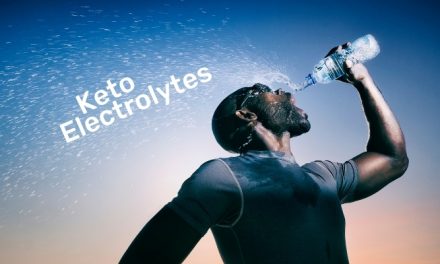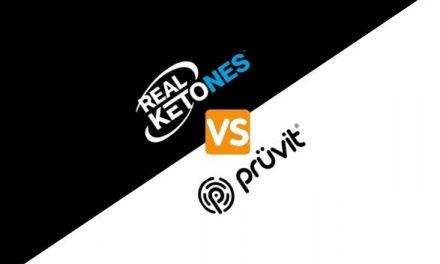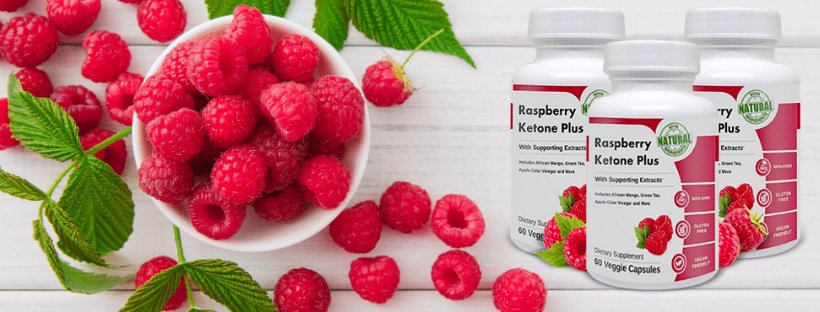Running while on Keto can be a difficult task for a lot of people but luckily, there are ways you can make it easier on yourself. Perhapes maybe even better than before.
But, are Keto supplements good for runners? There are several Keto-friendly supplements that may help improve your running routine, like improve your endurance, speed up recovery, give you a boost of energy and even help you burn more calories while you run. They are:
- Exogenous Ketones – Boosts energy(increases ketone levels), helps recover faster
- MCT Oil – Energy boost
- Creatine – Significantly increases both repetitive sprint performance (5-15%) and single-effort sprint performance (1-5%)
- Caffeine – Boosts energy, increases endurance
- L-Carnitine – Helps burn more calories while running, increases endurance
- L-Glutamine – Helps recover faster, increases endurance
- Collagen – Improves joint health, helps with faster recovery
- Electrolytes(Sodium, Magnesium, Potassium, Calcium) – Helps replenish electrolyte balance before, while or after running. Prevents cramps and dehydration
As you can see there are many Keto-friendly options for improving your running performance in a lot of various ways, which might make it hard for you to choose which ones to use. Below, we are going to explain each one of them in more detail so you will have an easier time picking what would benefit you the most.

How Different Keto Supplements Can Help Your Running Routine
So, let’s dive a little bit deeper and see the benefits of each supplement in more detail.
Exogenous Ketones
If you have been on Keto for a while then you have probably already heard of Exogenous Ketones. They are a supplement, and the idea of it is if you eat something that’s not Keto-friendly, you can reach out for exogenous ketones to get your body back in ketosis. They are similar to the ketones you produce while you follow a Keto diet, it’s just they are taken in a supplement form. That’s what the ‘exogenous’ word actually means, created ‘externally’, outside your body.
While you are on Keto, you probably already know that your energy comes from burning fat and creating and using ketones, not carbohydrates. And taking exogenous ketones as a supplement increases your blood ketone levels in a very short time, which then you can use for energy. So I guess you can see how using exogenous ketones strategically can help give you a boost of energy.
There is also evidence suggesting that ketones promote reduced recovery time. In a review article published in the Journal of Physiology 2 years ago, Brendan Egan evaluated already existing research on how ketosis affects the body during and after training.
It was concluded that post-exercise ketosis, achieved either through diet or supplements, is very likely to help with both restoring glycogen levels and also repairing damaged muscle fibers – which are the essential part of recovery.
How to take:
• For energy: 20-30 minutes before running
• For recovery: Within a 30-minute time window after running, ideally right after finishing
Check Out These Exogenous Ketone Products:
MCT Oil
MCT stands for medium chain triglycerides or medium chain fatty acids, which are a type of fat most often derived from coconut and more rarely from palm oil. It is often used by people doing the Keto diet because similarly to exogenous ketones it increases blood ketone levels by breaking down the fatty acids, which in turn helps remain or get in ketosis faster.
And just like exogenous ketones do, MCT oils can boost your energy levels as well but there is a difference. When you take exogenous ketones, your body can use them for energy right away. MCTs on the other hand, need to first be broken down and processed by the body before you can use them for energy. And that takes longer in contrast to the exogenous ketones.
How to take: 30-45 minutes before exercise/running
Creatine
This is an interesting one. Creatine is naturally found in the body and can also be obtained through the diet, mostly from eating red meat and fish. The main use of creatine in the body is the transfer of energy in the cells. The idea of it is, a higher level of creatine in the cells achieves a more rapid turnover of energy during any physical activity, like exercise or running.
Creatine is one of the most researched and popular supplements out there. It is most often used in bodybuilding for its well-proven ability to increase raw power and strength, ranging anywhere from 5-15%. The study also found that creatine supplementation leads to increased single-effort sprint performance (1-5%) and work performed during repetitive sprint performance (5-15%).
But creatine isn’t just an energy carrier, it actually has a variety of roles in the cell. It’s a known fact from studies in the 70s that creatine supplementation acts as a switch, increasing the amount of muscle protein synthesis, meaning faster recovery of damaged muscle fibers. Creatine also ‘sucks’ water into the muscle cells, improving their hydration which is critical to all cell functions, including the transfer of energy and their repair.
It is important to note that it takes some time before you will notice any benefits regarding energy gains and recovery. For the first 7-10 days, there is a so-called ‘loading’ phase where you take the creatine in a dose of 15-20g per day divided into multiple smaller doses, and then after those 7-10 days, after the muscle cells are satiated with creatine you follow up with a ‘maintenance’ dose of 5 grams creatine per day until the end of time.
How to take:
• The first 7-10 days(‘loading’ phase): 15-20 grams of creatine divided into 3-4 doses of 5 grams, 1 dose before and 1 dose after running, and the rest throughout the day.
• After the ‘loading’ phase: 5 grams per day, before or after running

How I like my coffee in the morning
Caffeine
Regarding energy, caffeine is kind of a no-brainer. Whether you get it from coffee, tea or other supplemental forms like gel packs or tablets, caffeine can certainly give you a boost of energy and increase your running performance.
There are a number of studies out there, like this one, which found that using caffeine ~1 hour before and during exercise increases endurance and exercise performance. Research also shows that caffeine has a positive effect on your mood, mental alertness, and also boosts your desire to run hard!
Just like it has helped you countless times in your college days when pulling all-nighters, a cup of coffee before a run or a race can go a long way.
How to take: 100-200mg caffeine 30 minutes before running, in form of gels, tablets, tea or coffee (approximately 1-2 cups of coffee). You can also consume some more caffeine mid-runs (gels are most practical) for an additional boost of energy.
L-Carnitine
L-Carnitine is an amino acid that’s very popular for its ability to burn fat, and as such, it is mainly used by people trying to lose weight. It plays an essential role in the transportation of fats to the mitochondria, where they’re converted to energy. L-Carnitine is most often taken as a supplement, but it is also found in dietary sources like red meat and to some degree in dairy.
Nine studies have revealed that subjects who supplemented with L-Carnitine lost significantly more weight than the control group that didn’t, and they also had a significant decrease in body mass index.
One other study has also shown that supplementing with L-Carnitine significantly increased endurance performance and prolonged exhaustion of athletes when taken in a dose of 3-4 grams before physical exercise.
How to take: 2-4 grams of L-Carnitine 30 minutes before running
L-Glutamine
L-Glutamine is another amino acid that is important for tissue repair and immune function. L-Glutamine is found in your blood plasma and muscle cells and it serves as fuel for your immune cells. High levels of cortisol (the stress hormone) lower glutamine levels, and intense endurance exercise like weightlifting or running are known for using up glutamine stores.
Since glutamine is also very important for the immune function, low levels of glutamine are a big reason endurance runners often get sick after intense training sessions because the muscles can’t fully recover between workouts.
How to take: Suggested dose is 15 grams daily divided into 3 smaller doses of 5 grams throughout the day.
Collagen
Collagen is the main structural protein in the human body, found in the bones, muscles, skin, and tendons. Basically, every single part of our body is made of the stuff. It’s the substance that holds the body together as a whole.
When you lift heavy weights in the gym or run long distances, you are damaging the muscle fibers and causing inflammation. Collagen promotes faster recovery of your connective tissues and also decreases the inflammation which in turn causes the damaged muscle fibers to re-grow bigger and stronger than before.
And if you have been actively running, you know how hard continuous exercise can be on your joints. After age 25 it has been shown that collagen levels start dropping way more rapidly than before and that’s one more reason to look into supplementing with it. Collagen supplementation can greatly improve your joint health and elasticity and make sure you don’t get injured while running.
How to take: About 10-20 grams of collagen, taken at any time of the day either in one or in divided doses.
Electrolytes (Sodium, Potassium, Magnesium, Calcium)
The four main electrolytes that maintain the body’s fluid balance are sodium, potassium, magnesium, and calcium. When we sweat during any endurance exercise, be it running, weightlifting or anything of that nature, we lose electrolytes through the sweat.
Electrolytes serve two important functions, they regulate water transfer in and out of the cells and they ‘spark’ electrical impulses in our bodies. Through those impulses and the nervous system is how the brain communicates with the rest of the body. And without the right electrolyte balance, your muscles can’t perform the tasks your brain tells them to do. All of our organs are basically muscle as well, so you can see how big of a role electrolyte balance has for all of our body functions.
Cramping is just one of the side effects that tell us that our ‘electrolyte tank’ is running low and that we need to refill it. Other electrolyte imbalance symptoms are: dizziness, nausea, dry mouth, dark urine, constipation, muscle fatigue, and also fatigue in general. But even if you haven’t felt any of these side-effects before, if you do intense running sessions it is advised to replenish your electrolytes for optimal recovery.
There are many different electrolyte supplements out there, mostly in powder form with various flavors. From my personal research, like 95% of them contain either added sugars or sweeteners that are known to raise insulin so watch out for that.
How to take: They are best taken either during or after exercise. The dose depends on the supplement, it is usually best to follow the supplement’s guidelines and serving size.
Can any of these supplements knock me out of ketosis?
One of the sneaky things that can knock you out of ketosis people don’t realize is excessive protein consumption. With that in mind, Collagen, L-Carnitine, and L-Glutamine could potentially knock you out of keto if you over-do them as all of them are actually proteins. Just take them in the recommended dosages and you will be fine.
Other than protein, another thing that could knock you out of keto are hidden sugars or artificial sweeteners contained in the earlier mentioned supplements. From the sweeteners, according to research the only ones that don’t spike insulin are Stevia, Monkfruit, Erythritol, and Sucralose – but only in its pure form, avoid Splenda which is actually a mix of Sucralose and Maltodextrin which as you probably know, has 2 times higher glycemic index than table sugar. So always make sure to read the label on the back of the product.
Related Questions
Is a low-carb diet good for runners?
Depends on what type of running we are talking about.
For lower intensity (walking), medium intensity (jogging) and even for higher intensity (running) type of exercise being on a low-carb diet and burning fat is a superior fuel compared to carbohydrates.
But since fat is a slower-burning fuel than carbs, a drawback emerges when it comes to extremely intense types of exercise, like lifting very heavy weights or sprinting where more explosive and powerful movements are present. For that kind of physical activity, a more carb oriented eating plan might be more suitable.
What are the benefits of running fasted(on an empty stomach) in the morning?
If you are trying to lose weight, in addition to doing Keto, running while fasted can be a great way to speed up your weight loss.
When you are running in a fasted, glycogen-depleted state in the morning after not consuming any calorie-containing food for multiple hours, your body is going to have a way easier time using your own fat for fuel. On the other hand, if you consume any food or drink containing calories before going for a run, that’s the first thing your body is going to use before starting to burn your own fat.
Note that running fasted will definitely impact your performance, so don’t force yourself into it, start slow and increase the time and intensity of your runs day by day.








